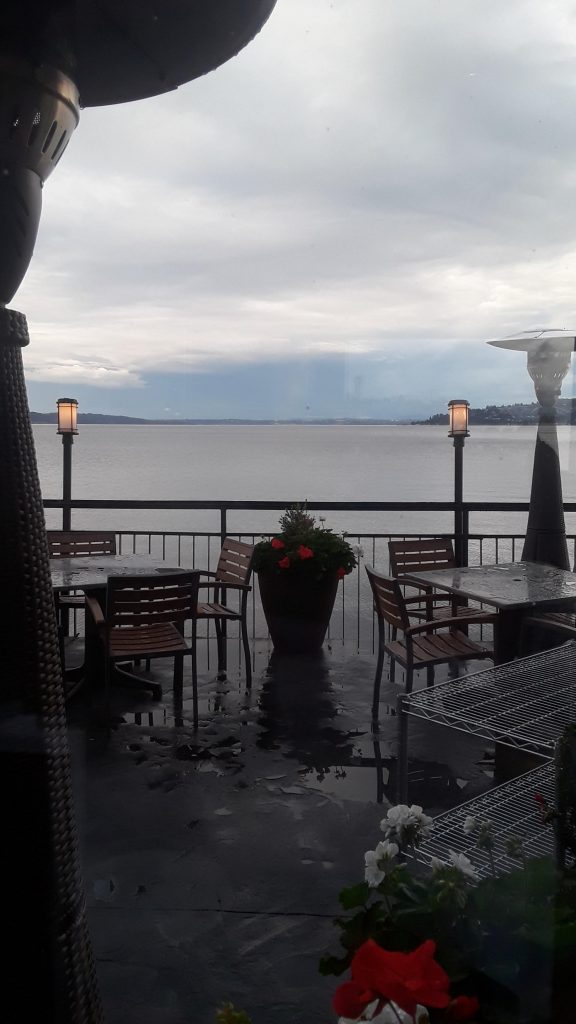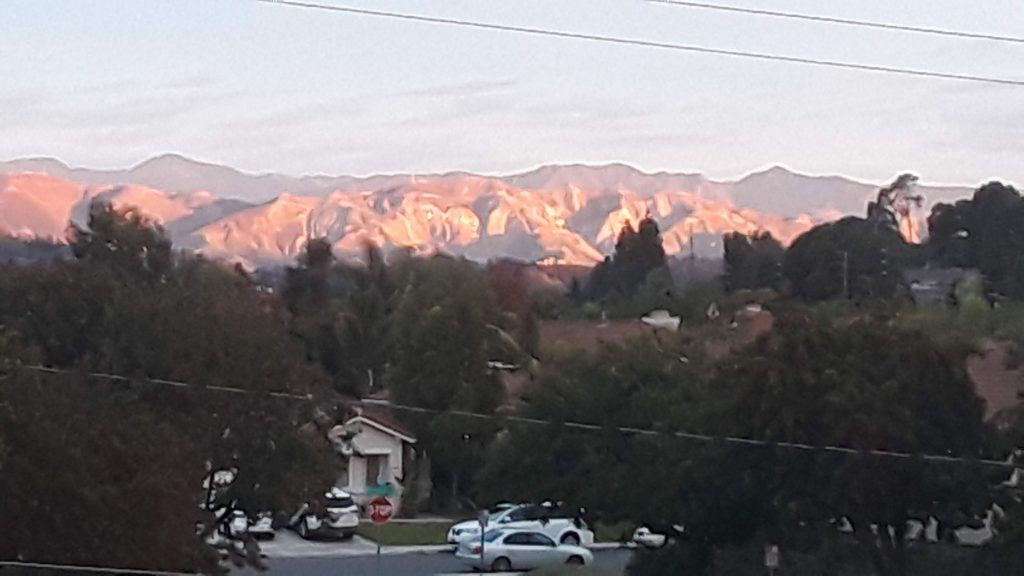Midsummer sun was just about at high noon. June, 2011 and I was sitting in my little Scion xB with a smile on my face as bright as that summer sun, eating an Italian sandwich from Lombardo’s deli. I’d finished my 21st year of teaching and felt comfortable with what I was doing there. Simultaneously, I’d been writing for my local daily newspaper since 2007 and this summer, things were kicking into high gear. Graduation was just the day before and already, I had stories lined up for the next two weeks. I relished every bite of that sandwich and the sips of Diet Coke I took. I remember feeling like…like I’d arrived. I loved what I was doing.
That was the beginning of a three-year run in which working as a journalist, I was just as busy as I was in my classroom. Even during the school year, I would work after-school, doing interviews, meeting deadlines, making appts. for more interviews. On occasion, during my journalism class, I’d do interviews via speaker phone and let my student reporters listen in to get a taste of how to do it. At one point, I was writing for the Ventura County Star, the New York Times, Ventana Magazine, San Jose Mercury News and the Silicon Valley Business Journal at the same time. I was granted opportunities teaching never gave me like when I was hired by the Mercury News to do an advertorial profile of a place called Santana Row. A mixed use business and residential community on Winchester Ave. in San Jose, the public relations arm of the corporation that ran Santana Row brought my wife and me to the community and put us up at Hotel Valencia, one of the nicest places I’ve ever stayed, and one I don’t think I could normally afford. They paid for us to eat and drink our way through interviews, tours and discussions with some very nice people. I was in love with what I was doing and I can do no other here than be cliche in response and tell you I don’t know how I did it. I just did. I know for certain that the schedule I kept in my mid to late 40’s is simply not a schedule I could keep now. I feel that in my bones. At least not teaching at the same time.
There was passion there, truly. But like Edna St. Vincent Millay’s candles burning at both ends, it was a life I knew could not go on forever. I’d have to choose to either pursue this full-time or go back to the classroom and complete a “full-term” of teaching to accrue retirement.
But the choice never really came for me. Rather, it was made for me when, in 2015, newspapers had been burning their own candles, working feverishly to gain readership and advertisement dollars and failing at both while the Internet scooped up their businesses. Reeling from that pressure, freelance jobs around the nation dried up. Here and there, I’ll still get a story, but for the most part, that well is dry. With the advent of California’s AB 5, I wouldn’t be able to pursue such a life anyway. The legislature in California has dis-allowed a freelance lifestyle in large measure. I have an opinion, but this isn’t the place for that. The facts here are simply the facts.
I turned 50 in 2015, too. Sue went back to work full-time while Shannon came to the high school with me and immediately, our roles changed. I was now both bread-winner and caretaker, just as Sue had been previously. She worked part-time, but took care of Shannon full-time. Now, I was teaching and also taking care of Shannon’s needs, though admittedly fewer (at least physically speaking) than Sue had to deal with.
I satiated the passion I had for reporting by pouring it into my Journalism class. I don’t know that I was effective, I’ve always found writing much easier than teaching writing, but I did it and it satisfied that part of my life. Many of my kids won awards for their work and reporting and it made me glad to live vicariously through them. But the glimpses of a future without reporting to the school were starting to manifest themselves and then came the dark years between 2016 and, well…now.
I’ve reported in these pages previously and so for my own sake, I won’t go into detail. Between the Thomas Fire, the Woolsey Fire, Easy Fire and the loss of such dear friends like Edd, Brett, Craig, John and so many others–life seemed to take on an urgency that forced all of us to consider ourselves amid the chaos. What were we all doing to make our lives extraordinary?
The moment, as so many of my retired teacher friends and relatives have told me, came toward February of last year. A year ago, I went into my classroom one morning and simply felt…nothing. Tired and somewhat bored, the strains that states and Feds have put on public education in the last few years combined with 4 years of fecklessness at our school and demands for standardized testing, differentiated instruction (fathom that alone, dear reader–the push to “differentiate” instruction is followed by a push for all kids to score well on standardized tests), class sizes, technology changes, doing more with less–all of it, came to bear, though not in the way I thought. My friends, my cousin, even my late Aunt, who taught for many years, told me, “you’ll just know when it’s time to go.” And I did.
I don’t have regrets about teaching and I’m not bitter. I know how the pendulum swings and this one will, too. There are already new and better changes on the horizon swinging us back into some sanity about understanding relationships with students and how those will drive instruction. But I’m done with them. I don’t get excited like I used to, though I still love to talk about education. I don’t share a passion I once shared with my colleagues about how to do something better, more efficiently, with better comprehension and all of it. Now, I tune out when such things are discussed. I’m not interested.
And that was the moment–I sat in my chair at my desk and realized that I’ve done what I can do as a teacher. I’m not looking back on it and finding fault, I’m just not interested in going any further at the high school level. Maybe a few college classes? Yes, I’d love to perhaps. But K-12 education and I are leaving on amicable terms. I’m smiling, happy and sincere in my choice. But I want to pursue more writing opportunities, more travel opportunities and a chance to enjoy this time without the encumbering weight of grading papers and endless meetings, 5:30 AM wake-ups and preparing lessons, posting grades and all of it. I’ve done that. I’m ready for the next horizon.
The future just 15 school months ahead is still a bit fuzzy, blurry and its edges are not yet in focus. I’m scared of what might be next and what it will lead to. There are “known unknowns” that I wish were not unknown. I am slightly afraid. I ask a lot of “what if” questions, rather like I did the night before I walked into my first classroom at Valley View Junior High School in Simi Valley nearly 30 years ago. And just now, that’s how I want it. In fact, I don’t think I’d have it any other way. I’m ready for what’s next. I’m ready for Sue and I to push on to another adventure and this is just to say–I have faith in the process, in God’s peace and plan–and in the future.
Onward.









